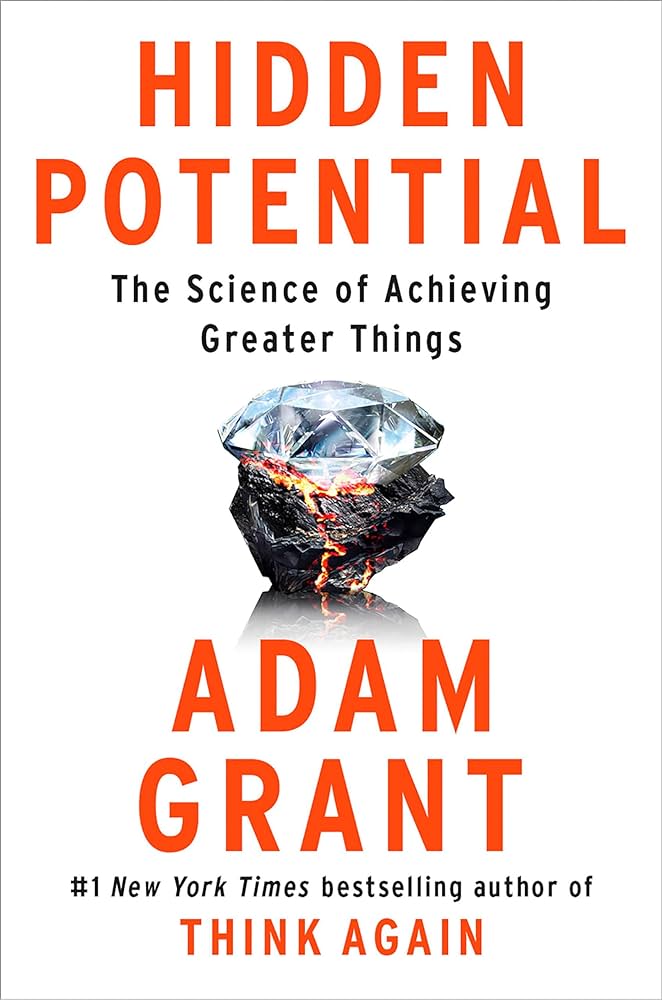Hidden Potential 📚

Adam Grant stuffs Hidden Potential with loads of anecdotes and research on growth, learning, and performance.
Excellence
Excellence relies less on our natural talent.
Bytes that get stuck in your teeth.

Adam Grant stuffs Hidden Potential with loads of anecdotes and research on growth, learning, and performance.
Excellence relies less on our natural talent.
Mary C. Murphy on the culture around growth mindsets.
Charity Majors:
The strategy for a fulfilling, lifelong career in tech is not to up the ante every interval. Nor is it to amass more and more power over others until you explode. Instead:
Camille Fournier:
Either way, it is important to realize that these more senior levels are not a measure of betterness, or quality, or raw intelligence and technical skills. They are instead a measure of demonstrated impact and confidence in the scope of work that the person can be tasked to accomplish. The people who get these promotions are trusted to navigate the systems of the company, to understand what is valued by the people around them and where to spend their time, because they have done just that.
Derek Thompson:
Role-switching is important not because quitting is so wonderful, but rather because sampling from different skills and fields is helpful, provided that you’re prepared to pounce on an area that clicks for you. Explore, then exploit.
Dave Anderson:
A promotion to a higher job level puts you in a more influential position. You are being given more responsibility. It’s not a reward. Instead, it’s the company granting you more influence.
Cindy Sridharan:
Unless you understand “why” things are the way they are (and there often is a method to every madness, if you’re patient to dig deep enough), any proposal you might have on “how” to improve the situation might end up very much going against the grain, making it that much more of an uphill task for your proposal to be accepted. Furthermore, it’ll make it seem as though you put in no effort to understand the history of the system, which doesn’t exactly breed a lot of confidence into why you should be entrusted with fixing the system.
Yaniv Bernstein:
Once I took on board that it was my job as an engineer to actually deliver impact, provide value, then I became a lot more engaged with my cross-functional partners.
Liz Keogh:
As the Peter Principle suggests, we tend to rise to the level of our incompetence… but that’s not actually such a bad thing, as long as we can learn fast, safely. The best way to do that is to make sure things are safe-to-fail, which usually means putting appropriate feedback loops in place. In a human system, that usually means feedback.
A look at how Skyscanner support their people’s transition from individual contributer to managers.
Rolling up your sleeves is magic.
Rands:
The fourth role is by far the most important. It’s the role the vast majority of engineers will follow in their careers, and I’m going to call it “This. Forever.” The role you have right now is the thing you are going to do be doing forever.
Richard Hamming giving advice to researchers in 1995, plenty of which serves as general career advice.
Here’s a selection:
John Barton:
In my very first programming role my manager said to me “You can make any mistake you like once. You’ll have my full support the first time you screw anything up. If you’re not making mistakes, you’re not learning, and if you’re repeating mistakes you aren’t either”.
A look at radical transparency at the hedge fund Bridgewater.
Embrace the power of compounding.
Tyler Cowen:
Learning something new all the time, and staying healthy. Getting paid. Interacting with smart people. Having the chance to pass something along to others.
There’s hope yet that I can draw me some comics one day.